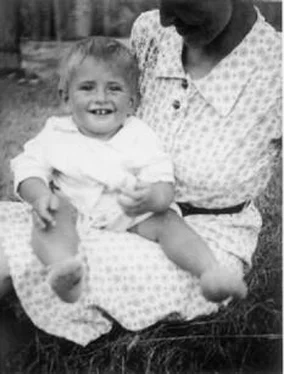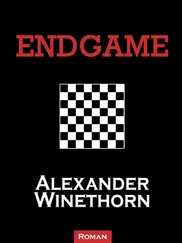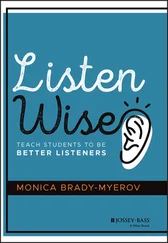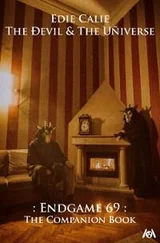Bobby greeted Dr. Euwe with a polite handshake and a gentle smile. Billed as a “friendly” contest—no titles were at issue—the two-game exhibition match was sponsored by the Manhattan Chess Club to give Bobby an opportunity to play against a world-class master. The stakes were pitifully small: $100 overall, $65 to the winner, and $35 for the loser.
Sitting at the chess table, the professor and the teenager created an almost comic tableau. Euwe’s long legs could barely fit underneath, and he sat obliquely, somewhat casually, as if he wasn’t truly a part of the action. In contrast, Bobby—all seriousness—had to sit upright to reach the pieces, his elbows just finding their way to the top of the board. A small crowd, hardly an audience, gathered around to follow the moves.
Euwe, in grandmasterly fashion, thoroughly outplayed Bobby until they reached the twentieth move, at which point Bobby, realizing that his position was hopeless, toppled his king in resignation. Feeling humiliated, Bobby burst out of the club in tears and ran to the subway. For his part, Euwe didn’t evince much pride in his swift victory, since he felt that Bobby “was only a boy.” He then quickly added, “But a promising one!”
The next day Bobby was back promptly at 2:30 p.m. for the second and final game of the match. This time he had the slight advantage of playing with the white pieces, which allowed him to employ his favorite opening strategy. Since he’d lost the day before, he was determined not to lose again. After an exchange of pieces, he emerged with a pawn ahead in an endgame that looked as though it would lead to a draw. When Bobby offered to trade rooks, Euwe responded by offering him a draw on the forty-first move. Bobby pondered for a long while and, with no apparent winning chances left, reluctantly agreed.
To wrest a draw from a former World Champion was neither small cheese nor minor chess, but Bobby was unhappy since he’d lost the match, 1½–½. Oddly, in the more than fifty years since, although virtually all of Bobby’s games have been analyzed and published—good games and bad; wins, draws, and losses—the complete score of the Fischer-Euwe draw has not only gone unpublished, but the game itself has gone unheralded in the chess press.

Contrary to the popular press’s portrayal of Regina Fischer as the absent mother who left Bobby alone to rear himself, she was actually a doting and caring parent who loved her son and was concerned about his welfare. Raising two children as a single parent and trying to complete her own education, she just didn’t have much time to spend with Bobby, nor did she have enough income to provide all the things she wanted to give him. One writer has claimed that the two didn’t speak to each other for more than thirty years; that’s simply false. They were always in touch, even when she remarried and went to Europe to finish her medical degree when Bobby was in his twenties. They shared messages, phone conversations, and gifts throughout their entire lives, all delivered with love, even though they might have been continents apart.
Most biographers have failed to make the salient point that the Fischer family was exceedingly poor—bordering on poverty, in fact—and every decision about which tournaments to enter, where to play, even which chess books and periodicals to buy came down to a question of money or lack thereof. During the 1950s and 1960s, the time of Bobby’s initial and then most intense ascent, an expenditure of just $5 was considered burdensome by both mother and son. It could be that this penury was the catalyst for Bobby’s often-criticized “greediness” later in his career. Bobby, on his way up the chess ladder, at one point wrote, “Many people imagine that the chess club or some other chess organization would take care of my travel expenses, buy chess literature for me, or in some other way finance me. It would be nice, or it would have been nice, but it just happens not to be so.”
As worrying as the family’s financial state was to Regina, her concerns about Bobby’s mental health, personality, and behavior eventually became preoccupying. Aside from taking Bobby to meet a psychologist, and her talk with the doctor about what to do with her son, she was always trying to guide Bobby to broaden himself through attending cultural events, engaging in sports, meeting other children, reading, and paying attention to his academic studies. She was pleased that Bobby found self-esteem in chess. What concerned her was that his life lacked balance; she worried that his chess single-mindedness wasn’t healthy.

In 1956, Dr. Reuben Fine, an American who was one of the world’s best chess players from the 1930s through the 1940s, wrote a monograph entitled Psychoanalytic Observations on Chess and Chess Masters , which was published as Volume 3 of Psychoanalysis , a journal of psychoanalytic psychology. Afterward, it became available as a separate seventy-four-page book, with a red-and-white chessboard cover. A certain amount of skepticism and even resentment was felt by many of the chess players who took the time to read it. Regina Fischer bought a copy and read it carefully; the book was found in Bobby’s library years later, but whether he ever read it is unknown.
Fine, a devoted Freudian (he’d go on to write two book-length studies of Freud’s theories and a history of psychoanalysis), took the position that chess is symbolically related to the libido and has Oedipal significance: “The King stands for the boy’s penis in the phallic stage, the self-image of man, and the father cut down to the boy’s size.”
He also devoted a chapter to the psychoses of four chess masters, selected from the millions of normal people who’d played seriously over the years. This imbalance provoked criticism for its promotion of the belief that all chess players are seriously addled.
Regina was impressed enough with the book, however, and with Dr. Fine’s chess credentials (he was an international grandmaster and had been a contender for the world title) to think he might be able to help Bobby, or at least temper the boy’s slavish devotion to the game. She wanted her son to do well in high school, enter a prestigious university, and get down and do some real work.
Regina arranged for Dr. Fine to telephone Bobby and invite him to his home just for an evening of chess. Bobby was well aware of Fine’s chess reputation, having played over his games; he also owned and had read several of his chess books. Bobby was suspicious, however. He didn’t want psychological probing. Fine assured him that he just wanted to play a few games with him.
Reuben Fine was not a therapist in the strict sense of the word, but he was a renowned psychoanalyst. His theory was that the problems of many troubled patients rested in forgotten psychic traumas, and through free association and the interpretation of dreams the key to the problems could be unlocked. The cure was usually a long process—sometimes lasting years—starting first with childhood memories and even, if possible, memories formed in utero.
Fine’s office was located in a huge apartment on the Upper West Side of Manhattan. One wing of it was his home, which he shared with his wife and three children; the other part consisted of an analysis room, complete with a Freudian fainting couch, and a group room next door. Patients underwent a minimum of one hour a week of analysis at $55 a session, and some participated in group sessions in the evening. Fine would sit in on the groups for one hour, say nothing, and observe how the members interacted with one another, and then for the final hour he’d quit the room and the group would continue alone. He’d then briefly discuss that session the next time each patient appeared for psychoanalysis. With Bobby, Fine wanted to first gain the boy’s trust and respect by playing chess, and then begin classical Freudian analysis, in tandem with the group process.
Читать дальше



![Антон Текшин - EndGame [СИ]](/books/394477/anton-tekshin-endgame-si-thumb.webp)









